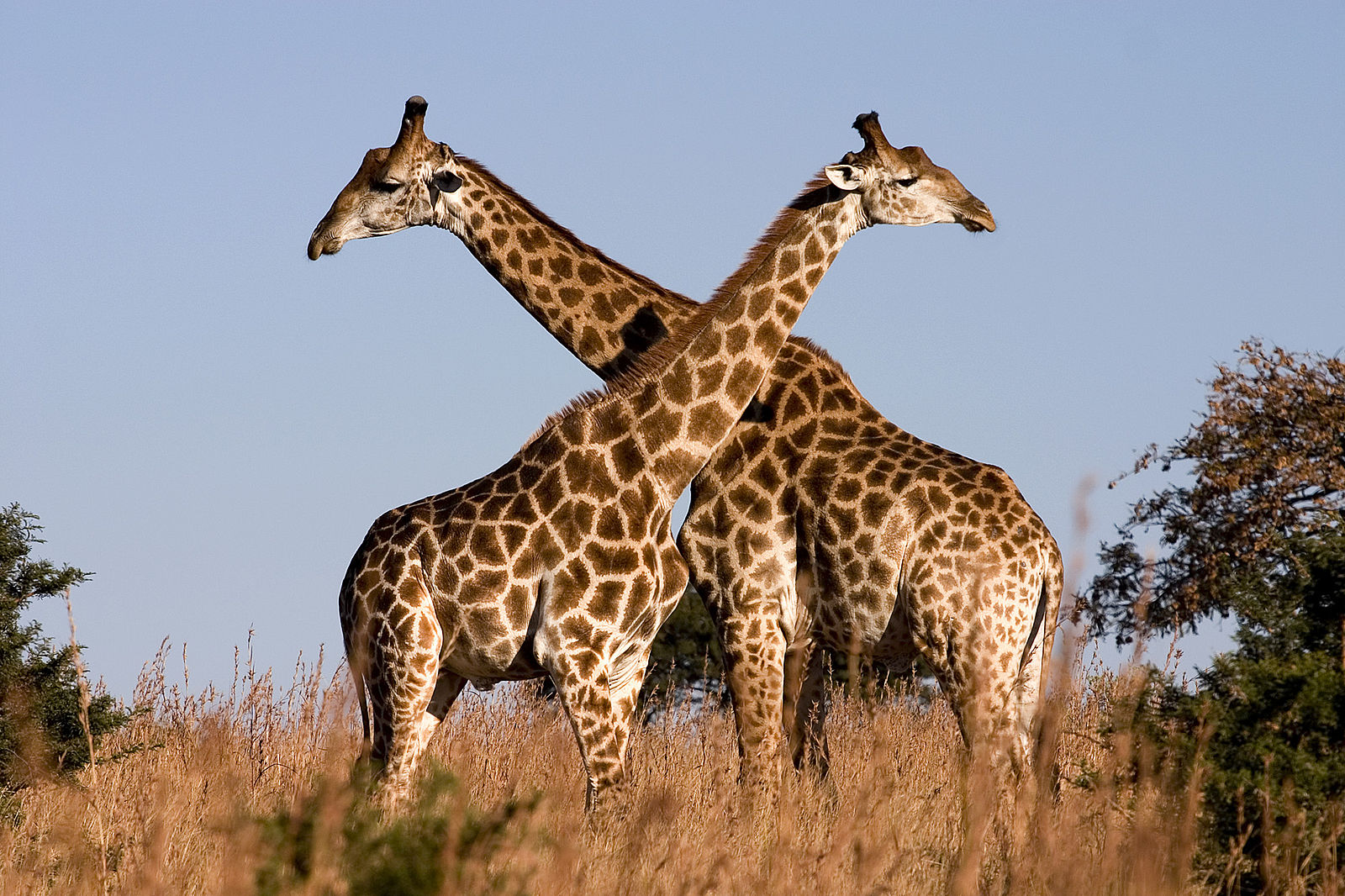Giraffes May Be as Socially Complex as Chimps and Elephants
By Cara Giaimo,
The New York Times
| 08. 07. 2021
A review of earlier research shows giraffes have the markings of social creatures, including friendships, day care and grandmothers.
Photo licensed for use by CC BY-SA 2.5 on Wikimedia Commons
Giraffes seem above it all. They float over the savanna like two-story ascetics, peering down at the fray from behind those long lashes. For decades, many biologists thought giraffes extended this treatment to their peers as well, with one popular wildlife guide calling them “aloof” and capable of only “the most casual” associations.
But more recently, as experts have paid closer attention to these lanky icons, a different social picture has begun to emerge. Female giraffes are now known to enjoy yearslong bonds. They have lunch buddies, stand guard over dead calves and stay close with their mothers and grandmothers. Females even form shared day care-like arrangements, called crèches, in which they take turns babysitting and feeding each others young.
Observations like these have reached a critical mass, said Zoe Muller, a wildlife biologist who completed her Ph.D. at the University of Bristol in England. She and Stephen Harris, also at Bristol, recently reviewed hundreds of giraffe studies to look for broader patterns. Their analysis, ...
Related Articles
By Jonathan Matthews, GMWatch | 12.11.2025
In our first article in this series, we investigated the dark PR tactics that have accompanied Colossal Bioscience’s de-extinction disinformation campaign, in which transgenic cloned grey wolves have been showcased to the world as resurrected dire wolves – a...
By Jessica Hamzelou, MIT Technology Review | 11.07.2025
This week, we heard that Tom Brady had his dog cloned. The former quarterback revealed that his Junie is actually a clone of Lua, a pit bull mix that died in 2023.
Brady’s announcement follows those of celebrities like Paris...
By Lauran Neergaard, AP News | 11.03.2025
WASHINGTON (AP) — The first clinical trial is getting underway to see if transplanting pig kidneys into people might really save lives.
United Therapeutics, a producer of gene-edited pig kidneys, announced Monday that the study’s initial transplant was performed successfully...
By Meagan Parrish, PharmaVoice | 10.10.2025
When CEO Ben Lamm steps into the spotlight, it’s usually to talk about his efforts bringing extinct animals back to life. Once a far-flung idea, Lamm and the company he heads, Colossal Biosciences, have proven they can pull it off...




